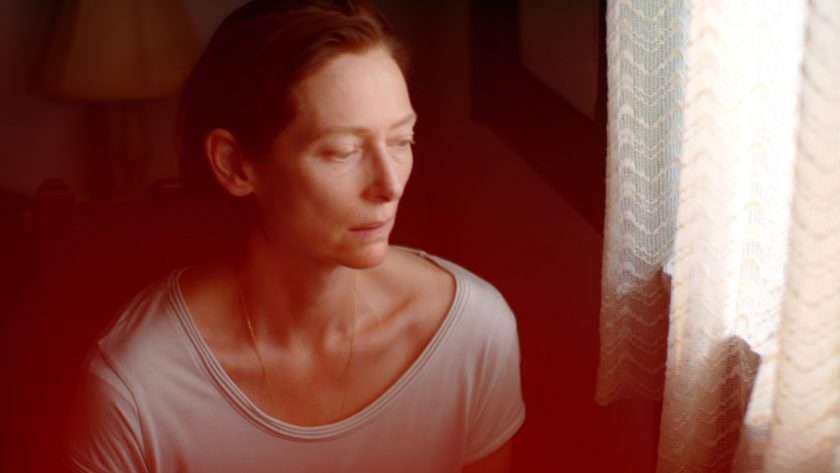Editor-in-Chief Lydia de Matos reviews Cannes’ 2021 Jury Prize winner, a mysterious slow-burner from director Apichatpong Weerasethakul
A film defined by a sound; both its memory and the anticipation of its return. You remember how the sound felt the first time you heard it, the way it split through the slight buzz of silence and landed with a heavy, sullen, sudden thud somewhere between your throat and your stomach. You wait for it to reoccur. You wonder if, the next time, it will feel the same. You wonder if the way it felt was less to do with it, and more to do with you.
Memory — collective and individual, although here the two are not so disparate as they may usually seem — pervades Memoria, covers it even, in the way memory tends to do; both a blanket which envelops and a dagger which pierces through. Jessica (Tilda Swinton) visits her sister, briefly suffering from a strange illness, in Colombia. She struggles to sleep, able to hear a sound which should never have reached her ears. Nearby, a decades long infrastructure project continues to uncover the bones of ancient natives. The illness of Jessica’s sister seems to more closely resemble the diseases of her orchids than those of humans. Memory is carried by nature, by the earth, by pain even, the past threatening to make itself known to those who forget it. Jessica’s lack of sleep presents less the effect of insomnia than it does the blurry confusion of the moment of awakening. Proust’s description feels apt:
when I awoke in the middle of the night, not knowing where I was, I could not even be sure at first who I was; I had only the most rudimentary sense of existence, such as may lurk and flicker in the depths of an animal’s consciousness; I was more destitute than the cave-dweller; but then the memory—not yet of the place in which I was, but of various other places where I had lived and might now very possibly be—would come like a rope let down from heaven to draw me up out of the abyss of not-being, from which I could never have escaped by myself: in a flash I would traverse centuries of civilisation, and out of a blurred glimpse of oil-lamps, then of shirts with turned-down collars, would gradually piece together the original components of my ego.
This is what Memoria achieves. Past and present live side by side, separated by the usual distance of time, yes, but that distance is as thin and porous as membrane.
Memoria wants you to attune your ears — all your senses, really, but especially your ears — to open them a little. In a pre-recorded introduction, Weerasethakul talks of an opening of the senses. It’s strange, I think, that so many consider slow cinema as forcing the viewer into boredom. While I don’t deny the distinct possibility of that, doesn’t it ignore the challenge? Wait. Pay attention. Allow yourself to become attentive to sensation. Revel in your senses. Let them dictate the hours to come. The senses lead, and eventually reveal; the film takes its time, strings of supposed plot floating here and there for a while, and when it judges that it has adequately opened your perception, pure sensation floods through. Two consecutive scenes — one by the river, and one inside the house of an older Hernán (Elkin Díaz) — slowly submerge the viewer as they unfold. At a glance, you would find little about them that is especially, notably different from all that came before, save for the catharsis of sorts to which they build. But there is something there; a certain heaviness, a tension — again felt in that place between the throat and stomach — as though the opening of the senses which has so far happened slowly is now accelerating. Without overt signalling, there is a sense that the moment of catharsis approaches. When it does arrive, it overwhelms; memory, feeling, history, and nature represented in a layered collection of shifting and swelling sounds. It is here that Memoria reveals itself, comes the closest to allowing an understanding of its meaning; the moment piercing through all that previously just floated. It is a question of cumulative effect, and a masterful use of sound design, moving for its very craftsmanship.
Memoria out on the 14th of January 2022:




